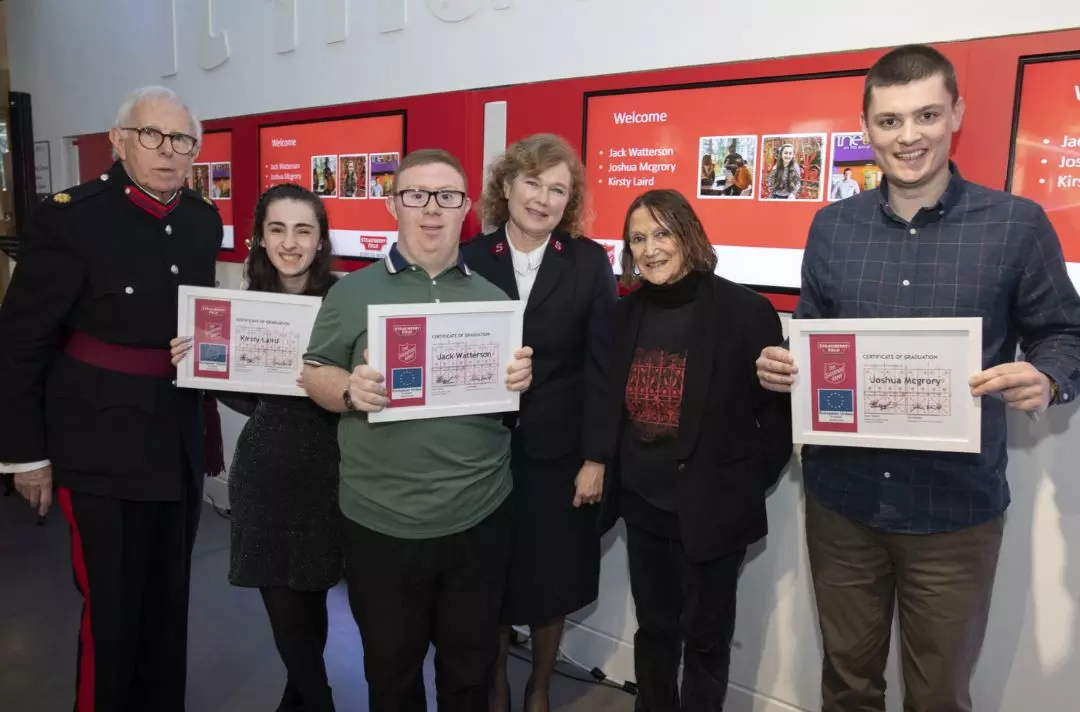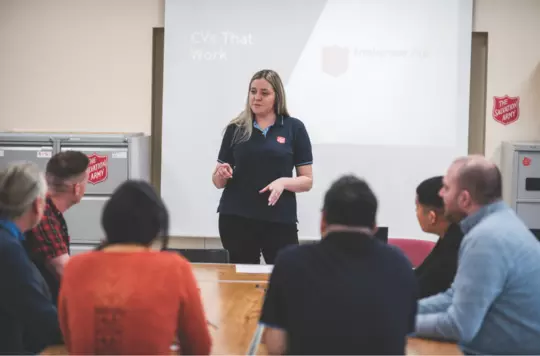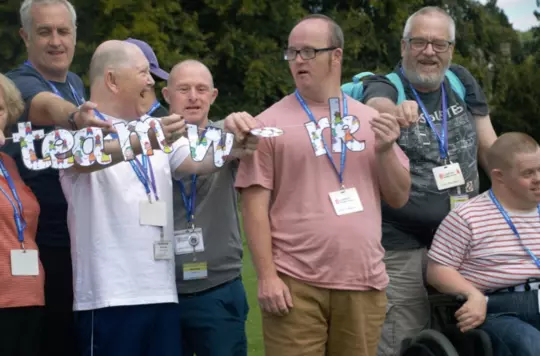7 September 2024
Steps to Work: Opening the door of opportunity
George Tanton

George Tanton explores how Steps to Work is changing perceptions of the neurodiverse workforce.
Steps to Work is an employment programme for young adults aged 18 to 25. Situated at Strawberry Field, Liverpool, it empowers students with neurodiversity, physical or learning difficulties, as well as mental health issues, to break down barriers to paid work. Its goal is to help individuals thrive in the world of work, while changing perceptions of disability and neurodiversity among employers.
Steps to Work commenced in 2018 following research by the Army into the economic life of people with learning disabilities.
Trainees are recommended to the programme through a number of avenues, particularly local special educational needs and disability (SEND) schools and Jobcentre Plus, but also through Strawberry Field’s outreach services.
‘A lot of the people that we work with are deemed as economically inactive,’ explains Major Kathy Versfeld, the Mission Director at Strawberry Field.‘They may be on benefits, which suggests that they don’t need to work, but that doesn’t mean they don’t want to.’
Trainees are appointed a dedicated work coach who supports them for the duration of the programme. They also receive emotional and pastoral care from the team while they complete an eight-week work readiness course, followed by three work placements.
As a person-centred service, the programme allows the student to consider a whole range of industries in which they could build a career. This is achieved through liaising with a number of community colleges and partner organisations, opening dialogue around vocational courses and work placements.
‘It’s all about sitting down with the individual and exploring their hopes and dreams,’ expresses Strawberry Field’s Employment Development Co-ordinator Adele Murphy. ‘Our role is to explore the job market for the trainee and open that door of opportunity for them with an employer.’
‘It’s about building confidence,’ she continues. ‘For some trainees, they have been told their whole life that they will never get a job or amount to anything. Then we show them, step by step, that they can work, and they will work, and they do great work. We call the programme Steps to Work because there’s lots of different steps you can take. We are creating a foundation for a person to move forward in their lives.’
The end goal is paid, sustainable employment. So far, trainees have successfully achieved this in an array of industries, from agriculture, conservation and construction to customer service, retail, hospitality and finance.
Steps to Work have established a variety of active partners across Liverpool, including Liverpool John Lennon Airport.
‘Think of every job there is in an airport,’ Kathy says. ‘There’s no industry that we’re not willing to explore.’
Steps to Work prides itself on championing neurodiversity, challenging potential employers to recruit from a more neurodiverse workforce and recognise the potential of all people regardless of their experience or ability.
‘By offering a supportive and inclusive environment to explore what those barriers are to work, we help students transition into not just employment, but inclusive working environments,’ explains Adele.
‘We want to change work culture,’ echoes Kathy.‘We want employers to understand just how wonderfully gifted these young people are. Just because they’re different, doesn’t mean they have less value.
'They enrich our shared places of work and our shared community life. We want to educate employers that what they gain from employing people who are different far outweighs the reasonable adjustments that they would have to make in hiring them.’
Kathy considers the future of the Steps to Work programme, taking into account its resounding success across Liverpool and the Merseyside area.
‘We are the pilots,’ Kathy asserts. ‘All cities in this country need a Steps to Work programme. And, if the UK needs the programme, other countries around the world will need it. We don’t just want to change Liverpool; we want to change the world!’
Written by

George Tanton
Editorial Assistant, Salvationist
Discover more

Rebecca Keating talks to Major Julian Watchorn about how Employment Plus is loving people into work.


